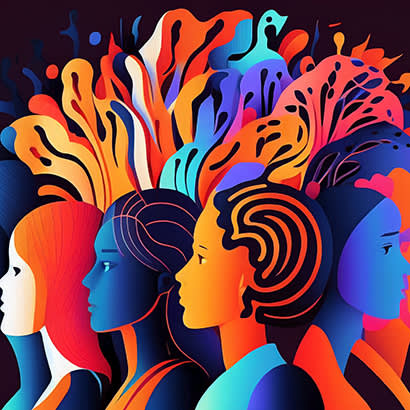
For an enhanced digital experience, read this story in the ezine.
I have had many different roles in my park and recreation career: part-time staff, center director, therapeutic recreation specialist, manager, administrator, and now ADA consultant. Looking back, there are several reasons why I wish I had known more about neurodiversity throughout my career. Neurodiversity “describes the idea that people experience and interact with the world around them in many different ways; there is no one ‘right’ way of thinking, learning, and behaving, and differences are not viewed as deficits.” Examples of neurodiversity include autism spectrum disorder and attention deficit hyperactivity disorder (ADHD), though the term encompasses any of the myriad ways of thinking that occur. By considering how people learn and experience the world through the lens of neurodiversity, we can enhance our role as professionals in the following ways:
Being a Better Public Servant
My lack of awareness was a deep hole in my professional preparation. As a center director, could I have better served kids on the autism spectrum, kids with learning disabilities, or adults with ADHD? Today, I am proud of my awareness; had I been aware previously, I could have made a big difference in the lives of the people I served.
Being a Better Coworker
My career includes opportunities to work alongside people with a range of abilities and health conditions. While I have provided support for coworkers with more visible disabilities, such as mobility impairments, I have missed opportunities to support others whose disabilities may not be as apparent. For example, consider what steps you might take to support a colleague with a seizure disorder. What assumptions do you make about their ability to carry out their work? Rather than worry about their ability to do their share, how can we support them as a coworker? Employers should make certain that their staff realize the diversity of their colleagues and provide strategies to facilitate interaction between all coworkers.
Being a Better Boss
Young staff look to supervisors, managers, and administrators as mentors. Those in mentorship roles should consider the ways in which they provide guidance and to whom they are making these opportunities available. Ask yourself questions, such as: Did I select neurodiverse staff for challenging or leadership roles, or did I give them easier tasks? Planning to give neurodiverse staff some of the spotlight, or acknowledging their work in public, goes a long way toward making a productive and inclusive workforce.
Being More Communicative
One easy way to create a more inclusive workplace is simply to discuss needs and preferences with your team members. For example, asking your coworkers how they prefer to communicate — and honoring that preference — can make a big difference in your day-to-day interactions with them.
This also can extend to challenges that arise in the workplace. When assessing risk, it’s important to discuss solutions with coworkers. This will lead to more effective follow-through than making unanimous decisions that others are required to accept.
Being More Than a Minimalist
Most of those I know who work in parks and recreation do not settle for the minimum. So, when a coworker has a disability, why do just the minimum, as required by the ADA? The ADA sets the floor, not the ceiling. If a coworker has a disability, consider doing more than just making an ADA-reasonable accommodation to facilitate the productivity of that team member.
Being a Better Person
I am neurodivergent. My seizure disorder has been a part of my life since I was 11 years old. Had the park and recreation staff when I was a kid known more about my ability, and not just expressed concerns about my very infrequently occurring disability, how different would my childhood have been?
While I cannot turn back the clock and be 11 again, I can ask today’s park and recreation professionals to be aware of those with disabilities in your communities. By exceeding the minimum, you can be a better boss, coworker, and public servant. Neurodivergent people like me are in your programs, work with you, live on your block, and are a growing part of your community.
Service to all means all.
John McGovern leads the Accessibility Practice at The W-T Group, LLC.

